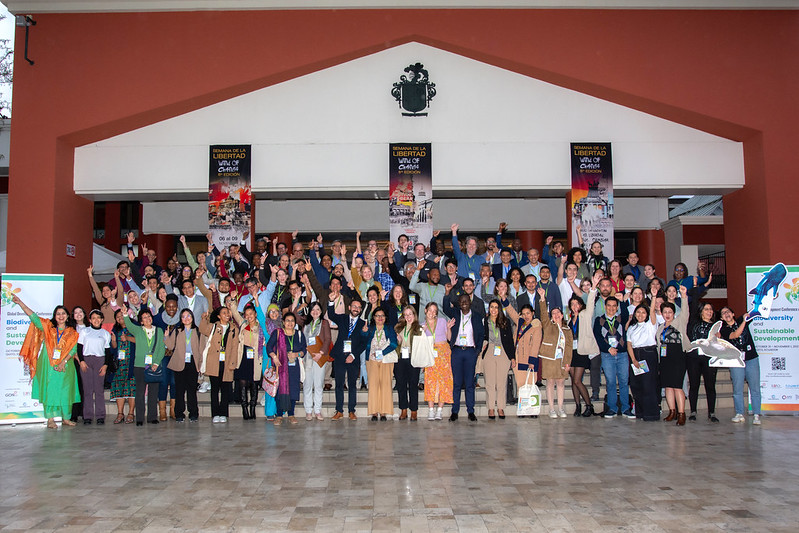- March 2024

A session at the Global Development Conference 2023: Biodiversity and Sustainable Development
(31 Oct – 1 Nov 2023) | Quito, Ecuador
Session date: 31 Oct
Session time: 14 – 15.30 (Quito)
There is increasing recognition of the role that trade and trade-related policies play in addressing the biodiversity crisis. Trade can exacerbate biodiversity degradation and loss, with about 30% of the global biodiversity footprint embedded in trade. Agricultural expansion in particular has been estimated to drive 88% of global deforestation, with only seven agricultural commodities with predominantly global supply chains — cattle, oil palm, soy, cocoa, rubber, coffee and plantation wood fibre — accounting for 26% of global tree cover loss from 2001 to 2015.
However, trade also has the potential to support conservation, sustainable use, and restoration—and related benefits to sustainable development. For example, trade in sustainable and fair products, such as certified coffee or cocoa, can provide better socio-economic stability and security for producers, generating both jobs and income while reducing pressure on biodiversity. Furthermore, with global demand for natural ingredients for health products growing, these ingredients (e.g. baobab, turmeric, aloe vera) can have significant business potential, especially in high-end markets where customers are willing to pay more for sustainably produced and “fair-trade” goods. As a result, an increasing number of global companies and retail chains are taking action to support products that can demonstrate sustainable production methods. According to the UN Commission on Trade and Development (UNCTAD), in 2021 over 45 countries had programs or policies in place to promote sustainable trade in goods and services derived from biodiversity (i.e. “BioTrade”).
Therefore, the influence of trade and trade-related policies on the successful achievement of global biodiversity targets is significant, with links to some of the biggest agents of change including agriculture, pollution and climate change.
The Kunming-Montreal Global Biodiversity Framework (GBF), adopted in December 2022, provides a fresh reference point for (re)examining the relevance of trade policy to the global biodiversity agenda and exploring how implementation of the new agenda could support both sustainable trade and sustainable development. In parallel, the increasing focus on environment and sustainable development in the context of trade, including at the WTO and as part of regional trade agreements, also presents an opportunity to discuss where trade policy could support delivery of the global biodiversity agenda.
Realising these opportunities requires developing a shared understanding between biodiversity and trade stakeholders of how different trade and trade-related policies and measures could be used so that they deliver benefits across all three agendas of biodiversity, sustainable trade, and sustainable development.
This session aims to support such understanding through sharing of information and knowledge, and exchange of views and ideas between key experts and institutions, with a particular focus on the insights from Latin America. Reflecting the GDN scope, the particular focus of the session will be on identifying key policy opportunities moving forward and related needs in the evidence-base supporting decision-making.
The session builds on UNEP-led policy paper “Nature-positive Trade for Sustainable Development” produced in collaboration with the Forum on Trade, Environment & the SDGS (TESS) published in March 2023. It draws its insights from two ongoing series of events: “Nature-positive trade for sustainable development” webinar series by UKRI GCRF Trade, Development and the Environment Hub (TRADE Hub), UN Environment Programme (UNEP), World Trade Organisation (WTO), Convention of Biological Diversity (CBD), UN Conference on Trade and Development (UNCTAD) BioTrade Initiative, and International Trade Centre (ITC) and a series of regional consultations on nature-positive trade led by UNEP in cooperation with UNCTAD and ICT in 2023.